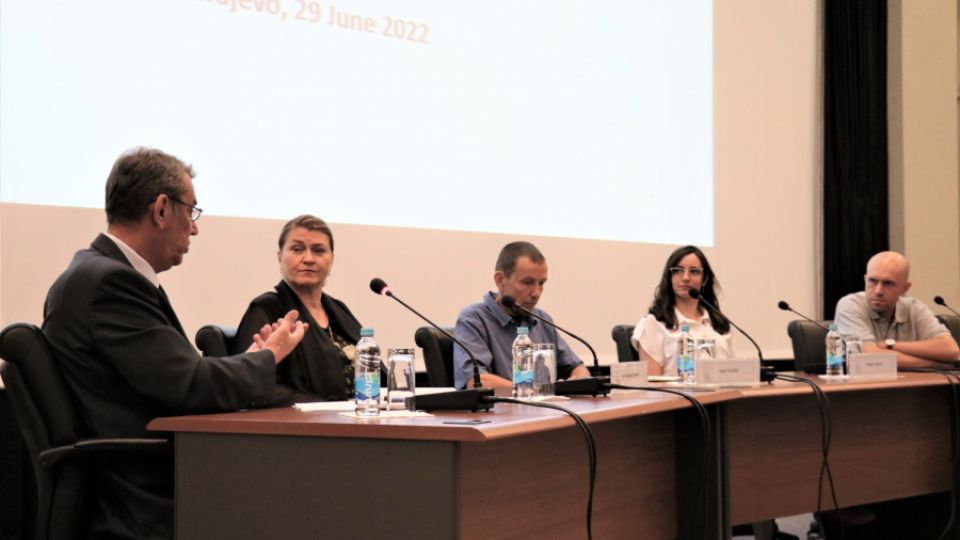29 June 2022, SARAJEVO/PRAGUE - The people of Bosnia and Herzegovina still lack information about the state of the environment and face serious obstacles when trying to get involved in decision-making on projects that affect their lives and homes, concluded the participants in the conference “Environmental Democracy in Bosnia and Herzegovina: Implementation of the Aarhus Convention in legislation and practice”, held on June 29 in Sarajevo.
The Conference, organized by the Arnika Association (Czechia) and the OSCE Mission to Bosnia and Herzegovina, in cooperation with the Coalition for the Protection of Rivers in Bosnia and Herzegovina and the Center for Environment, brought together representatives of the authorities in BiH and civil society organizations with the aim of discussing specific steps to strengthen environmental democracy in the country.
The Conference was also an opportunity for environmental experts to present the main findings of the most recent Aarhus Convention National Implementation and Shadow Reports for BiH.
The Shadow Report highlights that whilst progress has been made in recent years in the approximation of EU environmental legislation, the implementation and enforcement of such laws remains at an unsatisfactory level. Limited capacities and negligence of civil servants, weak involvement of the public in decision-making, and protracted judicial and administrative proceedings are just some of the hindrances that persist. “Citizens need better access to information about the environment in order to be able to fully access and protect their rights”, said Ambassador Kathleen Kavalec, the Head of the OSCE Mission to Bosnia and Herzegovina. “Aarhus Centres can serve as a bridge between the public and authorities by encouraging greater public sector transparency and helping citizens to express their views and concerns on environmental issues,” concluded Kavalec.
“The Shadow Report highlights insufficient education of civil servants and consequent misinterpretation of laws, lack of use of modern online tools when publishing information, and the non-existence of easily accessible databases concerning the environment. At the same time, we can see increasing interest and involvement of the public in decision-making processes concerning the environment. That has resulted in a higher number of legal processes initiated by civic society,” stated Zuzana Vachůnová, coordinator of international projects at Arnika “Respect for environmental rights is one of the most important steps in the approximation of Bosnia and Herzegovina to the European Union. The public authorities should see the elimination of existing injustice as one of their priorities. Although in 2017, only 22 legal remedies were initiated, in 2020 it was already 67 cases,” added Vachůnová.
Ratko Pilipović, an independent lawyer at the Center for Environment and the Shadow Report's main author, stated: “We can demonstrate through many cases that the incompetence of civil servants is common, especially when it comes to access to information. In 2016, the Center for Environment requested information from the Attorney General's Office, but their request was unlawfully rejected. It took four years and several legal remedies, including an appeal to the Supreme Court, to get the full information. This case is unfortunately not unique. Between the years 2017 and 2020, out of 953 requests for information submitted to the state authorities, only 60% received responses.”
The conference participants underlined the urgent need for regular dialogue between international institutions, public authorities, and civil society in strengthening the implementation of the Aarhus Convention in practice and called for further incorporation of the Convention’s principles into domestic legislation.








